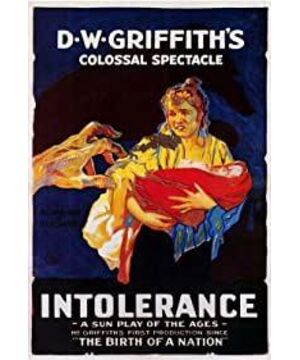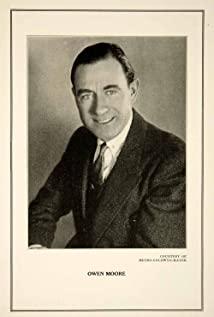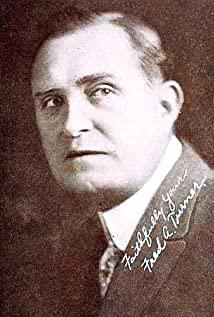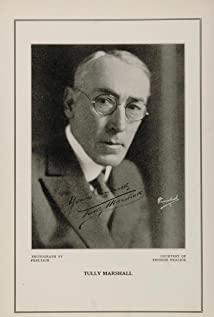7.1
No set design drawings, which is the best! How the walls of Babylon were built was a hundred years ago. The text says that the gates of Babylon were never captured, and the visual elements were forced to fit the textual elements. As the inventor of this language, Griffith's work is closer to literature than art, Whitman is there, Dickens is there. Just a few pictures came out with a text annotation, cross-age montage can serve politics, and text box slideshows are also trying to create an alienation effect.
But whether this effect is really ideal, I dare not comment. Stuffed into a lengthy discourse, almost everything that happened was predictable, with diminishing marginal utility, and it was hard for me to stay excited all the time. At first it was a movie about faces, until the story of the kingdom of Babylon, the space scheduling was enriched, the general strike began, and the main line gradually became clear. The symbolism was also ahead of the times a hundred years ago. The words "Intolerance" in the scenes of the cradle and the text were like paragraph breaks. Humans never learned the lessons of history, and chaos came back to life. The manipulation of smoke and dust helped to match the editing of several eras of the climax of the war in the mid-section. Incense, prayers, burning tributes, catapults, battering rams, and burning oil in front of the idols of the Sun Cult were all special effects. The jump cuts with some obvious traces are a little embarrassing. Although the vertical frame composition of buildings and portraits made of masks is also a famous language, it was still a bit clumsy at the time.
Griffith's montage comes from Dickens. After all, the meaning of a single picture is limited, and the syntax of parallel editing is actually prone to problems. It is very obvious that the content of each branch is very different, but for the consistency of emotions, they must be stuck in time and reach a climax at the same time, and the narrative rhythm is not so stable. Furthermore, the ending of "Mother and the Law" forcibly turns the story into a happy ending in order to set up a "last-minute rescue", which also seems out of place in the previous three established disasters. In addition, whether the translation of the same party or the original words that are not tolerant enough is not accurate enough, only the auxiliary branch of the old religion attacking the Protestant is summarized by "Party same and attacking the difference". It is not that the other stories are not exciting, but they are closer to other themes than the title. Their tragedy comes from betrayal and frame-up, not the anger of the same party. The appearance of "Intolerance" in the text is not always reasonable, and many times it exists as a far-fetched theme extraction sentence.
"Party Dissent" may exist as an atonement for "The Birth of a Nation". The KKK did not only appear in a purely positive image, but the narrowness and tolerance Griffith satirized and advocated still seemed vain. Just staying at the emotional level, it is not like being at the level of "academic paper" that many people evaluate. Griffith is still standing on his extremely conservative values to answer many disasters. On the opposite side of the same party, the so-called "tolerance" should also have high and low levels, practice to the maximum, and can run through every era, it must be a universal love. Like Christ's "Love the enemy" motto: bless him who curses you, and pray for him who insults you. Someone hits your face on this side, and even the other side will be hit by him. Only the episode for the forgiveness of sins expresses this, "If any of you have no sin, throw a stone at her".
Of course, more than a hundred years later, today's society is still divided, and it is becoming more and more divided, and groups are wary or hostile to each other. It is not so much his prediction as a summary. Every country is also undergoing revolution, Babylon, Rome, France, America, every business is also undergoing revolution, market, religion, law, industry, Griffith also completed the revolution, but in this infinite change , there is no change in the core of human destiny, he brings a pessimistic perspective on this issue, which is the inevitability of entropy increase.
In any case, the degree of liking for "Party Dissent" and the achievements of D.W. Griffith are two different things. He is the creator of this language. He is the creator of this language. These are all used. The opinions of the fans are sometimes loud and sometimes quiet, and this movie to me, "too many rowdy and pleasure-seeking people", the big vision of the dance of the city of Babylon is densely packed, eight hundred to fifteen thousand people, all names. Forgotten, they became the girl of the mountain, the sweet one, the boy, the progressives, the musketeers. I was deeply impressed by Milan Cooper's close-up, the first close-up on his face in the film. The degree of surprise is no different from discovering the tears in Dickens's eyes. Milan Cooper, born November 7, 1891, so April 12, 1976.
View more about Intolerance reviews











